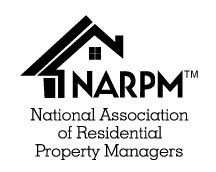If you have a Santa Cruz rental property and you’re not sure about how to handle tenant complaints and disputes, things can get uncomfortable pretty quickly.
When you do a thorough job of
tenant screening and you work hard to develop a positive and professional relationship with your residents, those disputes and conflicts should be minimal. But, there is always the potential for some minor issue to escalate, and you’ll need to be prepared.
In our experience as
Santa Cruz property managers, we’ve found that communication is typically the tool that solves most problems with tenants. If you have a strong communication plan in place and your residents feel comfortable coming to you with concerns, you’ll quickly and easily put any problems to rest.
Here are the three things that help with communication:
- Active listening
- Availability
- Responsiveness
When you can understand the role that communication plays in establishing and maintaining good tenant relationships, you can count on a smooth and stress-free rental experience for your home in Santa Cruz.
Here are our communication tips.
Listening to Tenants Leads to Better Communication
Tenants need to know that they’re being heard.
Practice being a good listener. This can be difficult if you’re in a hurry to solve a problem and move on or if you’re frustrated that a particular tenant calls you with a new complaint every week. It will help your relationship, however, to listen and understand what your tenant is really trying to tell you.
Tenants want to feel like you care about them and their experience, especially when something isn’t going right. Hear what they’re saying and be empathetic to what they’re feeling. Even if you cannot fix something right away, letting them know that you understand the inconvenience will help them feel less frustrated. This will prevent conflicts from escalating and it will protect your relationship with your renter.
Actively listen to what your tenants have to say, even if it’s a complaint. When you understand what your tenants need, you can do a better job of meeting their needs. If a conflict arises, resist the impulse to get defensive or become unprofessional. Keep the lines of communication open at all times, and be willing to hold yourself and your tenant accountable to the lease agreement and the responsibilities that are outlined there.
Remaining Available and Accessible to Your Residents
Your tenants need to know how to get in touch with you. Make sure you’re available and make sure they have your best contact information. You can set boundaries. Maybe you won’t answer the phone after 8:00 p.m. unless it’s an emergency, for example. That’s fine. Just make sure you respond to your tenant the next day as quickly as possible.
Answer texts and emails promptly. This type of accessibility can feel like a burden, but it really is necessary to continue building a better tenant relationship. You’re not trying to be best friends with your tenants. But, they do need to know that you care about their welfare and their rental experience.
It’s fair to expect that your tenants also remain available to you if you’re trying to get in touch with them. Set up these expectations early in your relationship.
Responsiveness Creates Trust in Tenant Relations
Your tenants need to trust you. And, you need to trust your tenants. A good relationship requires responsiveness from both parties.
When a tenant has a complaint or there’s a problem that they’re asking you to solve, be responsive. Hiding from your tenants or ignoring their requests for help will only cause discord and frustration.
Put a plan together for how you will address these situations. Be prepared to keep in touch with your tenants until the dispute is resolved or the problem is solved. Whether it’s a maintenance issue that’s recurring and problematic or a conflict between two tenants who live next door to each other, communication and responsiveness will help you work through it until a satisfactory conclusion is reached. Not every problem will be solved and not every tenant complaint will be fixed. But, they do have to be addressed. Make sure you’re willing and equipped to do that.
Tenants will want and expect communication in different ways. You might prefer phone calls, but if they’re more comfortable with text messages and emails, that’s how you should communicate with them. Be willing to communicate in a way that fits their comfort level and preference.
Communicating Expectations Leads to Better Results
Our process for communicating with tenants begins before they even move into the property. Establishing a great standard of communication early on will help you avoid disputes, misunderstandings, and conflicts. Good communication during the leasing process will also save money and time because you won’t be called upon to answer all those questions that tenants are likely to have early in the lease term. You will already have addressed them.
We explain some of the most important parts of the lease agreement to our tenants, allowing them to ask questions and get clarification on anything that might be confusing. We cover essential parts of the lease, including:
- Rent collection policies
- Maintenance reporting procedures
- Rules around guests, smoking, parking, pets, etc.
- Requirements, such as renter’s insurance
Taking the time to talk through these sections of the lease agreement will save us a lot of potential problems later. Everyone will be on the same page, and there will be fewer opportunities for conflicts and disputes. We want to share our expectations early, and reinforce them often. We’re accessible when tenants have questions, and this leads to a more pleasant rental experience for everyone.








